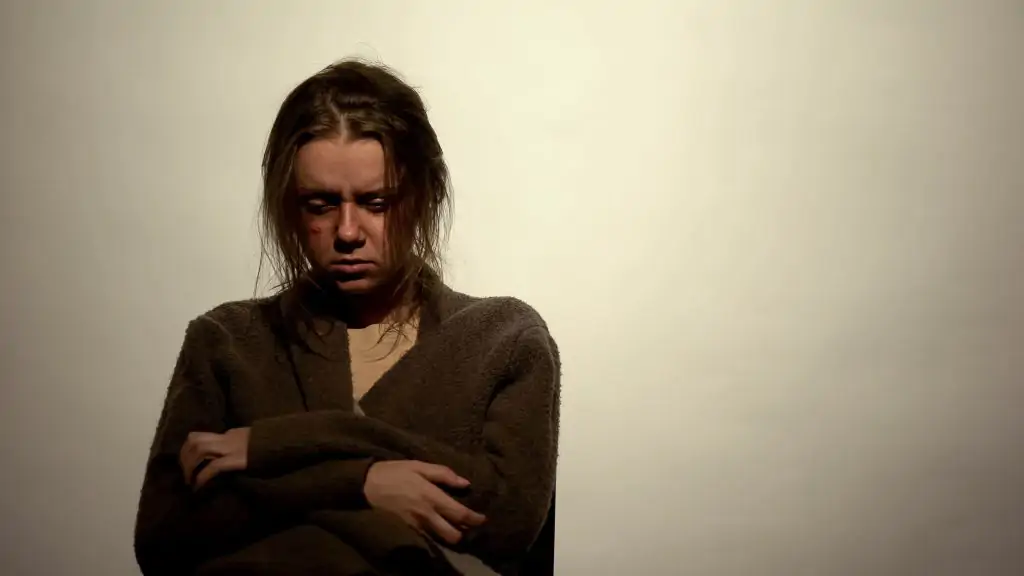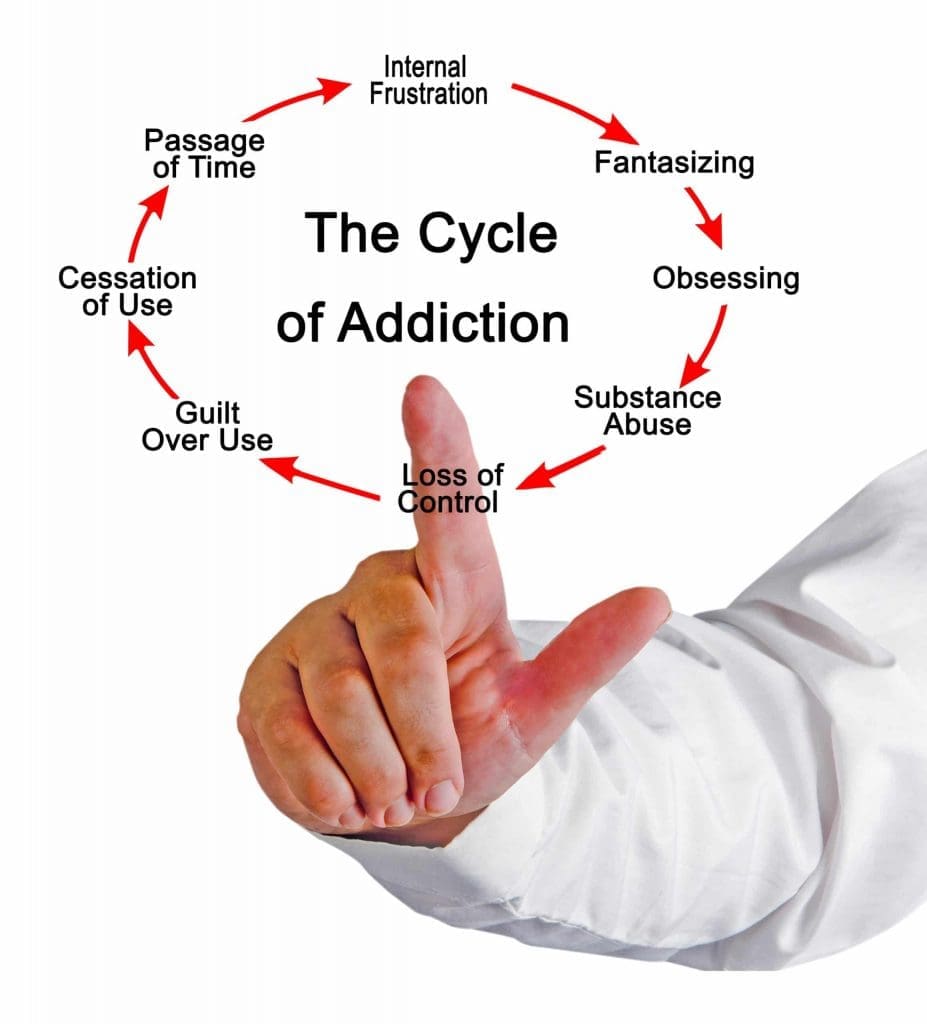-
Call Us: 0330 111 2015


Jump to a section ▼
› Introduction
› What is drug withdrawal?
› What are drug addiction withdrawal symptoms?
› Treating drug withdrawal symptoms
› How long drug withdrawal lasts
› Drug withdrawal can be potentially fatal
› Safe & comfortable withdrawal from drug addiction
Speak with our admission team
Call now on 0330 111 2015When a person becomes physically addicted to a drug, stopping the drug will produce drug withdrawal symptoms.
Symptoms of drug withdrawal can vary tremendously in their effects, depending on the type of drug involved.
It is easy to diagnose drug addiction withdrawal symptoms, symptoms will disappear or diminish by taking more of the drug
Drug withdrawal symptoms occur if a person misses a dose or tries to stop taking drugs where there is a physical dependence present.
Any drug that changes the way a person feels physically or mentally has the potential to lead to drug addiction. This includes drugs such as cocaine, alcohol, opiates, amphetamines, addictive prescription drugs and over the counter medicines containing codeine.
When a person develops a drug addiction, their body and brain will have gone through a number of drastic physiological and chemical changes that cause them to become tolerant to the drug’s effects. The body and brain do this automatically with addictive drugs so that the person can continue to function (1)
In a person with a predisposition to drug addiction and drug abuse, when tolerance occurs they will naturally want to feel the effects of the drug that initially provided them with a powerful euphoric high. This leads them to take more of the drug. The vicious cycle of tolerance and taking increasing amounts of a drug is never ending.
Unless medical and therapeutic intervention is applied to break the cycle of addiction, the addicted person will suffer more and more serious consequences to their physical, psychological, emotional, social and occupational health. Many drug addictions tragically end in death (1)
Drug addiction cannot be cured but it can be successfully treated with the correct professional treatment.
Recovery from drug addiction starts with stopping the drug. This part can prove impossible to someone who is compelled to take drugs regardless of the outcome.
The good news is that drug withdrawal symptoms can be effectively minimised and controlled through undergoing a full medical drug detox, enabling a safe and comfortable drug withdrawal process.

Drug withdrawal is a process that the body goes through whilst stopping a drug it has become accustomed to having.
Whilst drug withdrawal is only a temporary process, depending on how severe the drug dependence is and how long it has been established, dictates the severity of the drug withdrawal symptoms.
Drug withdrawal symptoms can range from mild to severe, with some drugs causing life threatening withdrawal symptoms.
Drug withdrawal presents a number of symptoms that can affect a person physically and mentally, both of which can be extremely unpleasant and challenging.
How long drug withdrawal symptoms last can vary from person to person and depending on the drug
Those who do not undertake a full medical detox are much more likely to suffer from PAWS ( post acute withdrawal syndrome). PAWS symptoms can last for months, sometimes even years and tend to come and go sporadically (2)
Rapid detoxes are also more likely to result in developing PAWS, putting the person at higher risk of relapse.
Drug addiction withdrawal symptoms are a collection of physical and psychological symptoms that result from withdrawing from a drug addiction too quickly.
Common physical drug withdrawal symptoms include:
Common psychological drug withdrawal symptoms include:
Dangerous drug withdrawal symptoms include:
Dangerous drug withdrawal symptoms can be avoided with a full medical detox. Common drug withdrawal symptoms will be drastically reduced or irradiated completely with a full bespoke medical detox.
Following detoxification from any drug, it is strongly recommended that the person undertakes a bespoke drug rehabilitation programme in order to prevent relapse.
 Detox safely in our medical facility
Detox safely in our medical facility
 Free collection
Free collection Future-proof
Future-proofDue to the nature of drug withdrawal being so unpleasant, sadly many people who attempt this on their own relapse, or even worse can die as a result.
Often, with a moderate to severe drug dependence, over the counter medicines do not suffice. They do little to relieve the symptoms of drug withdrawal.
A full medical drug detox involves prescription medications, ideally administered within a medical residential setting that is temptation free.
Pharmaceutical medications used to treat drug withdrawal are administered to replace the drug(s). The patient is then weaned off the prescribed medication in a safe and controlled way until it is safe to stop completely.
Drug withdrawal symptoms are suppressed by the detox medication. This vastly increases the odds of a successful detox.
Clinically, a full medical detox has been proven to be the safest and most successful way of arresting a drug addiction. It is important to understand however, that a medical detox only treats the physical dependence aspect and not the addiction itself (3)

Once detoxed, abstinence can be maintained by undertaking a bespoke treatment programme.
How long a drug withdrawal lasts depends on a number of factors.
Factors that affect the duration of drug withdrawal include:
To give you an idea of how long drug detoxes typically take on average using pharmaceutical medications, here is a guideline.
Guideline for drug detox durations:
Undertaking any of these detoxes without prescription medication and professional supervision will likely result in relapse, more severe drug withdrawal symptoms and a longer duration of withdrawal symptoms.
We cannot stress enough that every person’s addiction is different as is their individual genetic make up and circumstances. Drug addiction detoxes should therefore be bespoke and tailored specifically to the person.
Drug addiction frequently results in death. As the person’s tolerance grows they progressively take more drugs and more risks.
The body and brain eventually reach a point where they become damaged through excessive exposure to the drugs toxins. Yet a person with a drug addiction will still continue to take drugs even when their health and life is suffering as a direct result.
In 2019, England and Wales recorded 4,393 deaths related to drug poisoning, similar to the previous year. Two thirds of these deaths were males. Over the last decade drug related deaths have soared in the UK causing much concern (5)
Withdrawal from certain drugs can also result in death if it is not medically managed. Addictive sedative drugs that suppress the central nervous system (CNS) are particularly dangerous to withdraw from.
Dangerous drugs to withdraw from include:
The danger relating to withdrawal from certain drugs – Alcohol, benzodiazepines, opiates and gabapentinoids in particular, is caused by the extreme changes that take place in the body during the dependency forming process and then during drug withdrawal.
Alcohol, opiates, benzodiazepines and gabapentinoids all interfere with the brain’s GABA system.
Sudden withdrawal from any of these drugs sends the body and brain into acute overdrive, causing a number of extremely unpleasant drug withdrawal symptoms. Some more severe symptoms can lead to death if not medically treated immediately (6)
Not all cold turkey detoxes result in death but with certain drugs it is most definitely a gamble that should not be taken.
Here at Delamere we believe no one should suffer during drug withdrawal.
Each of our guests are comprehensively assessed by our Psychiatrist who specialises in drug and alcohol detoxification. They are then prescribed a completely bespoke medical detox that is administered by our qualified nurses who monitor the process 24/7.
Any complications that arise during detox are immediately addressed by our clinical nursing team and doctor.
During the detoxification process, our guests are encouraged to rest and recuperate, enabling the body to heal at its own pace. Light therapy, high levels of care and delicious nutritious meals are delivered to support each guest’s recovery whilst undergoing detox.
Once detoxed, our guests move from our purpose built detox clinic to our main addiction treatment and behavioural wellness centre. Here, they undergo an intensive and entirely bespoke rehabilitation programme to help them heal on every level.

Addiction doesn’t just stop when the drugs do.
As a chronic and progressive relapsing disease of the brain, evidence based treatments are applied to help the brain heal and adopt healthier methods of dealing with life and emotions. These methods and treatments are tailored to each guest’s specific needs and requirements. (1,3)
At Delamere we are passionate about helping those who suffer from drug addiction to grow beyond addiction, supporting them every step of the way.
Drug addiction doesn’t have to be a life sentence, there is a way out and we can show you how!
Start your recovery journey by calling our admissions team today.
Confidential. Straightforward. Friendly.